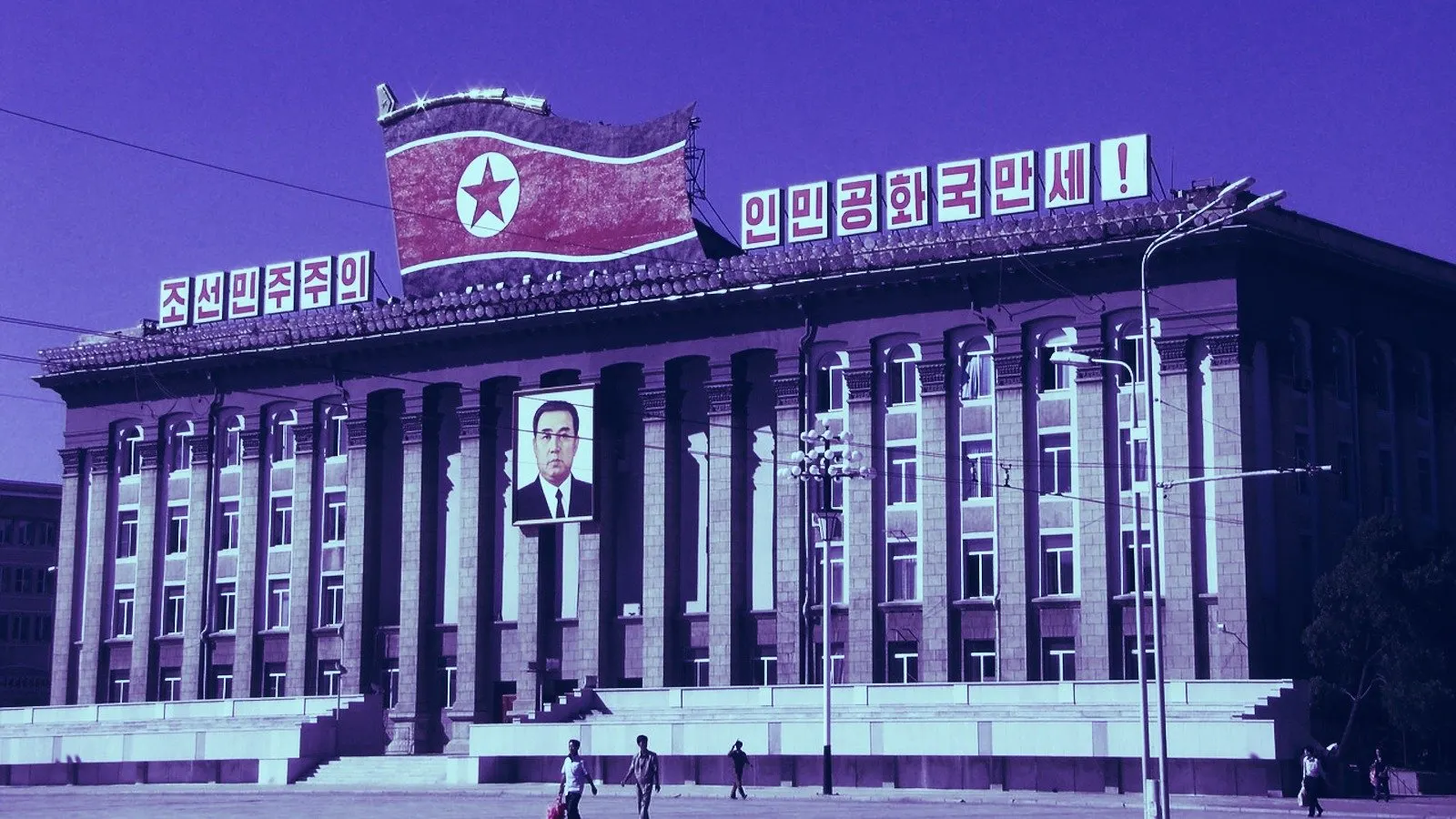North Korea is developing its own digital currency and hopes to use Ethereum-style smart contracts to set up a “U.N.-less” court system, according to people involved with the process. And to further these aims, the regime has been hosting conferences to attract top talent in the crypto industry and learn from them.
Unlike China and Venezuela, North Korea is not seeking to digitize its existing fiat currency, said Alejandro Cao de Benós, President of the Korean Friendship Association and longtime supporter of the North Korean regime. De Benós, who is an official at the DPRK’s Committee for Cultural Relations, as well as the point man for the country in Europe, organized North Korea’s first two crypto events and worked closely with government officials.
In an interview with Decrypt, de Benós, a colorful character whose background is in IT, claimed that the country is looking to develop a “token based on something with physical value”—like gold—”in the international market.” He likened the project to Ripple and Paxos Gold, and said that it would operate as a proxy currency used to achieve a “more stable price for international settlements, between DPRK and other companies/individuals.”
Citizens will still use the regular Korean Won, de Benós asserted, emphasizing that “DPRK tokens” would be for its banks, companies and organizations.
Requests for comment from the North Korean government went unanswered. Indeed, a visit today to the Embassy of the People's Republic of North Korea, in a suburb of London, was fruitless. A man who identified himself as a janitor, answered the door, and said no one else was available.
While the regime, which is the subject of stringent U.S. and U.N. sanctions, already allows state-owned businesses to transact in bitcoin, ether and tether, these cryptocurrencies are volatile, and impossible to control. “BTC and ETH is not under our development or control,” said de Benós. “Also, [they] can be subject to foreign speculation, [or] pump and dump.”
Open for business
Last week, North Korea’s government announced an event dubbed the "Pyongyang Blockchain and Cryptocurrency Conference," which will be held in its capital in February, 2020, and which de Benós is coordinating. Though anyone can apply, applicants must be pre-approved before they can attend the gathering, which was described as offering an “exclusive environment of confidentiality and contacts with the highest government officials and engineers.”
The purpose of the conference is to court international crypto experts. That's what happened at a previous gathering in April 2019, with a handful of the regime's foreign "crypto expert friends" offering insight on the planned digital currency, according to de Benós.
We spoke to one of the attendees, who asked to remain anonymous so he could discuss sensitive information openly. He acknowledged hearing about what he described as a “WeChat”-style system that the Government was interested in building, but he provided no other information.
“The main things they were interested in were, using Bitcoin to get around sanctions, and using Ethereum for U.N.-less courts,” the attendee said.
He said that some 100 North Koreans attended April’s conference, including government officials, employees at the state-owned bank and economics professors. “They wanted to know how to use Bitcoin as a replacement for SWIFT,” he said. “They’re not really into self-sovereignty, but they are into ‘national sovereignty’...they framed it as a way of facilitating national independence.”
And the “U.N.-less courts? North Korea, according to the source, sees the self-executing smart contracts that run on the Ethereum network as a way to enforce deals it makes with foreign counterparts. Since the regime doesn't trust the U.N., it has relied on Chinese intermediaries to enforce deals abroad. But sometimes, officials told the source, those intermediaries cheat the North Koreans.
“North Korea has real trouble enforcing agreement outside of its own borders,” he said. “Generally they load up Chinese people with millions of dollars in cash [and send them across the border], but half the time, these people just disappear with the money. There’s not much they can do about it.” As such, North Koreans “desperately want a way to have agreements that work outside their own borders,” he explained. “I told them about smart contracts. They were very excited about that.”
The regime's least favorite sort of hack
As development of a digital currency continues apace, the regime has found other uses for the technology. Earlier this year, the United Nations accused the regime of stealing some $2 billion dollars worth of cryptocurrencies from exchanges across the United States and Southeast Asia to finance its undercover nuclear program. The regime categorically denied the allegations, as did Cao de Benos.
Frustrations over this negative press have inspired another potential use for blockchain: punishing critical reporters. At this year's blockchain conference, officials floated the idea of using smart contracts to hold large deposits from foreign journalists in escrow. In the event of an unflattering article, these funds would be withheld, one official suggested.
North Korea has long had trouble with foreign journalists. Speaking to our source, officials cited an unnamed French journalist who travelled to North Korea some years ago, ostensibly to cover the regime’s climate change program. But the reporter, the officials lamented, ended up writing about “inequality and poverty."
“Perhaps understandably, the North was like, ‘This wasn’t what we had in mind,” said our source.
The next conference is expected to be far larger than the first, said de Benós, the representative. As with the previous one, it will be open to all, except citizens from Japan, South Korea and Israel. And to gain entry, applicants will once more have to submit “pre-approved” talking points.
De Benós added that the current planned digital currency system may be followed by even bolder projects. “We may develop another one for national use only,” he said.

